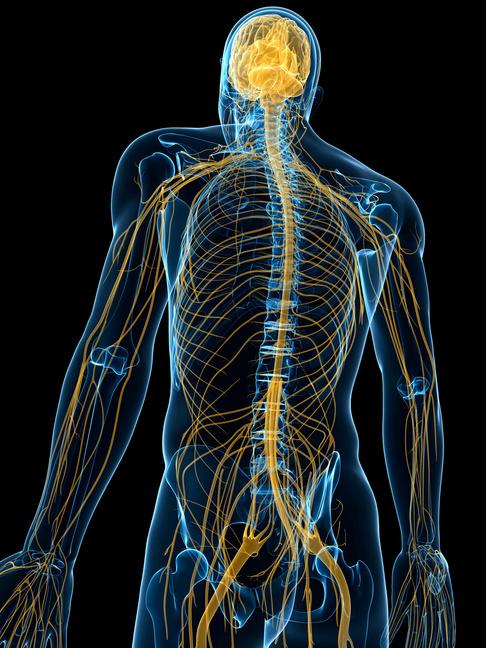
3 minute read
The Autonomic Nervous System
By Brian Drummond Recharge Remedial Therapy
The autonomic nervous system (ANS) plays a crucial role in regulating many of the body's internal functions, including heart rate, blood pressure, and digestion. It also plays a role in the body's response to stress and pain. Shifting the ANS before treatment can help improve the outcome of treatment for musculoskeletal issues.

Musculoskeletal issues, such as back pain, neck pain, or osteoarthritis, can be caused by a variety of factors, including physical injury, inflammation, and stress. Pain and discomfort associated with these conditions can be debilitating and affect quality of life Treatment of musculoskeletal issues often focuses mostly or wholly on treating the problem area rather than taking a holistic view.
By shifting the ANS before treatment, therapists can help prepare the body for healing and improve the effectiveness of treatment This can be accomplished through various techniques, such as slow breathing, applying red light to the base of the neck, or stimulating certain acupuncture points These techniques can help activate the parasympathetic nervous system, which promotes relaxation and reduces stress When the body is in a relaxed state, it is better able to respond to treatment. For example, physical therapy may be more effective when the mind and body are more relaxed.

Moreover, the ANS can influence the immune system's response to musculoskeletal conditions. The sympathetic nervous system (SNS) is responsible for the "fight-or-flight" response to stress, which can result in increased inflammation and pain. In contrast, the parasympathetic nervous system (PNS) promotes relaxation and reduces inflammation, which can aid in healing. Shifting the ANS towards the PNS can help reduce inflammation and pain, and improve the immune system's response to injury.
In addition, relaxation techniques can also help manage the emotional and psychological aspects of musculoskeletal issues. Stress and anxiety can exacerbate pain and delay healing. Promoting relaxation and reducing stress can help clients better cope with the emotional and psychological impact of their condition.
In summary, shifting the ANS before treatment can help improve the outcome of treatment for musculoskeletal issues By promoting relaxation, reducing stress and inflammation, and improving immune system function, clinicians can help prepare the body for healing and improve the effectiveness of treatment This approach offers a more holistic and comprehensive approach to treating musculoskeletal issues and may lead to better longterm outcomes for clients '











